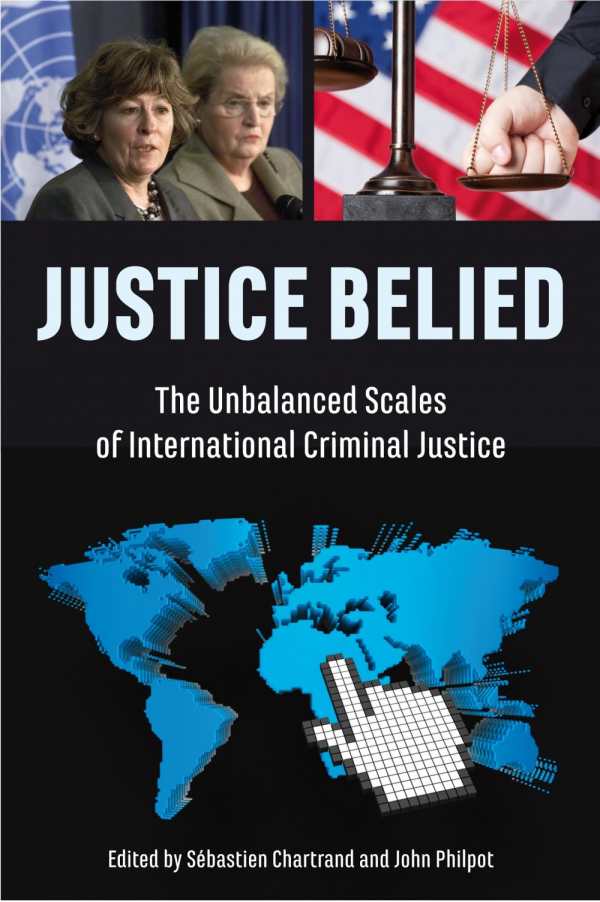It looks like you've stumbled upon a page meant to be read by our code instead of viewed directly. You're probably looking for this page.
Justice Belied
The Unbalanced Scales of International Criminal Justice
Informative essays and interviews concerning international law reveal to academics the injustices of some political agendas.
Justice Belied: The Unbalanced Scales of International Criminal Justice is a compilation of a series of articles examining the effectiveness (or lack thereof) of the international justice system. Most of the book is of an academic style written by experts in their fields, making Justice Belied a work aimed more at researchers than general readers.
Focused mostly on cases in Africa (primarily Rwanda), the pieces are compiled by John Philpot and Sébastien Chartrand, both of whom have extensive background working in international law. The entries take many forms, from thorough essays to interviews with experts to angry political columns, with varying degrees of success.
The better essays tend to be those focused on specific cases. An effective essay by Joseph Bukeye focuses specifically on the case of Victorie Ingabire, a Rwandan opposition politician who was arrested for comments about the justice system there. Ingabire’s statements that international justice should apply to both sides of the 1994 conflict in Rwanda led to charges that included supporting “genocide ideology” and “complicity in terrorist acts.” Bukeye uses the case to argue both that justice for the 1990s situation was unevenly applied, and that the current Rwandan government is enjoying a form of “victor’s justice” that lets it repress opposition with impunity.
Another piece, by Andre Sirois, looks back at how the International Tribunal for Rwanda was created, providing a solid overview of how infighting and government pressure during the process led to systemic problems. An essay by Philpot looks at the selective nature of international prosecution, briefly highlighting cases like Lebanon, Cambodia, Sierra Leone, and Liberia, discussing how the United States influenced how international law was applied to those situations, and arguing that the United States has not held its own citizens to the same standard. Other pieces in the book are a little more scattershot, with some reading more like polemics or deviating a bit from the topic at hand, but the best pieces in Justice Belied raise interesting questions about why the notion of international law hasn’t lived up to its noble stated intentions.
Reviewed by
Jeff Fleischer
Disclosure: This article is not an endorsement, but a review. The publisher of this book provided free copies of the book to have their book reviewed by a professional reviewer. No fee was paid by the publisher for this review. Foreword Reviews only recommends books that we love. Foreword Magazine, Inc. is disclosing this in accordance with the Federal Trade Commission’s 16 CFR, Part 255.
